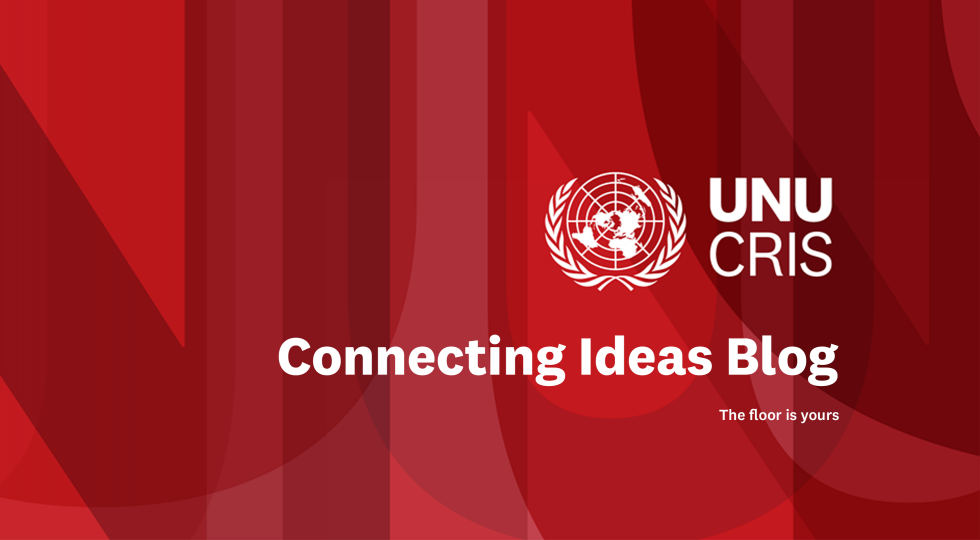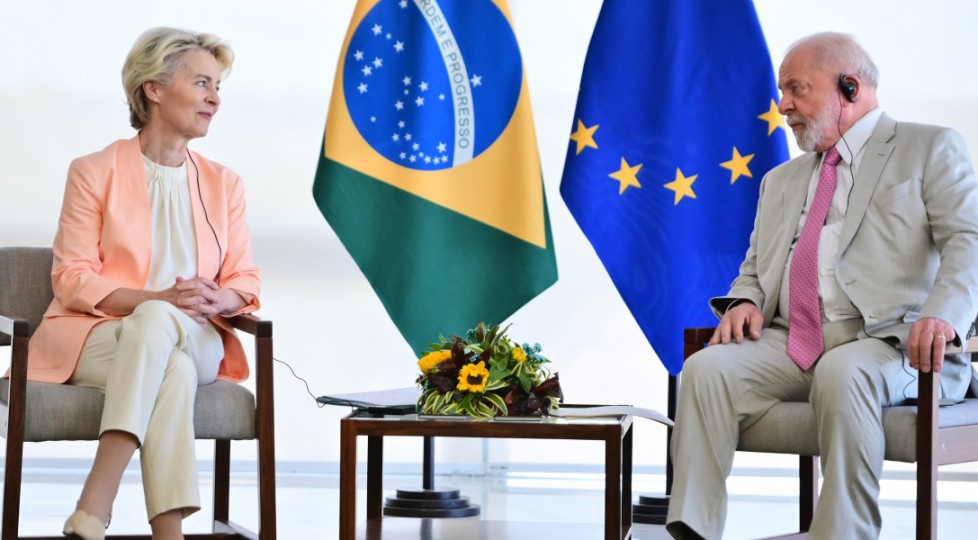European Elections and their Implications for Europe’s Future and Relations with Mercosur and Brazil

MSCA Postdoctoral Fellow, Université Libre de Bruxelles (REPI/IEE)
03 July 2024 | #24.06 | The views expressed in this post are those of the author(s) and may not reflect those of UNU-CRIS.
Key Outcomes of the 2024 European Elections
One of the notable outcomes of the elections is the maintenance of the European People's Party (EPP) as the dominant political force in the European Parliament. This result has important implications for the continuation of Ursula von der Leyen as President of the European Commission for another five years. The reappointment of von der Leyen will largely depend on her ability to negotiate alliances, either with traditional (liberals and socialists) or potential new European partners (conservatives and reformists).
The elections also witnessed significant losses for the Liberals, particularly those from France, and the Greens, mainly from France and Germany. Concurrently, there was a marked increase in Members of the European Parliament (MEPs) from the hard and extreme right, represented by groups such as the European Conservatives and Reformists (ECR) and Identity and Democracy (ID), linked to leaders like Giorgia Meloni and Marine Le Pen, respectively.
Potential Impacts on the EU
The election outcomes may have profound effects on various EU policies and its internal dynamics, such as the European Green Deal and the EU’s migration policies. On the one hand, the continuation and implementation of the European Green Deal could be at risk. There is a possibility of a relativisation of commitments, particularly in light of resistance from certain segments of European society, as evidenced by protests from European farmers. Given the EU's pivotal role in global climate change initiatives, any backsliding on environmental commitments could have far-reaching consequences. On the other hand, the EU may adopt more stringent measures against migration. Potential alliances between the ECR and EPP could drive these changes, as hinted by von der Leyen during electoral debates. Historical precedents indicate that issues such as security, the economy, and migration have previously united the centre-right and the ECR.
EU’s Relations with Latin America and Mercosur
Von der Leyen's potential continuation as Commission President is theoretically favourable for EU-Latin America relations. She has previously established positive relationships with several Latin American leaders, including Brazilian President Lula. Initiatives like the relaunch of the EU-CELAC Summit and the announcement of the Global Gateway portfolio signal promising directions for these relations.
The appointment of the High Representative for Foreign Affairs and Security Policy will also be crucial. A candidate from a country with strong ties to Latin America could enhance the region’s significance in EU foreign policy. This would be analogous to the tenure of Josep Borrell, who had a notable focus on the region. However, the expectations of the nomination of a liberal/Renew representative coming from a Baltic or Eastern European country may contribute to increasing the EU’s priority to its eastern neighbourhood and the war in Ukraine, leaving Latin America among the EU’s least relevant regions of the world.
For the conclusion of trade agreements, the role of the Trade Commissioner is vital. Those include the EU-Mercosur Association Agreement, a comprehensive agreement between the two regional integration blocs covering trade, political, and cooperation pillars, which has been under negotiation for two decades. Despite reaching an agreement in principle in 2019, recent attempts to conclude negotiations have faced resistance, notably from Argentina and French President Macron.

For agreements with agricultural powers such as Mercosur, it would be advantageous if the Trade Commissioner does not hail from countries with strong agricultural lobbies like France, Ireland, or Austria. Although technical aspects of negotiations are paramount, the political context from those in charge of the trade talks cannot be overlooked.
Within the European Parliament, a reduction in the number of Greens might facilitate the ratification of agreements like the Mercosur-EU Agreement, which have been consistently contested by green parties and environmentalist movements across Europe. However, nationalist parties may align with European farmers to bloc the agreement, despite the possibilities of narrow support from the EP, coming from the majority of EPP, some socialists and liberals MEPs – especially from the Iberic countries, and parts of the ECR group who share a favourable posture regarding free-trade deals.
Future of EU-Brazil Relations
The results of the European elections also have direct implications for the EU-Brazil relations, which are encompassed by two main institutional dimensions. First, the EU-Brazil Strategic Partnership, established in 2007, includes political and foreign policy instruments and has seen the development of action plans and sectoral dialogues on various topics, including human rights, science and technology, and United Nations affairs. However, high-level summits have been stalled since 2014.
As highlighted by the Brazilian Ambassador to the EU, it is imperative to decouple EU-Brazil relations from the broader EU-Mercosur negotiations. The Strategic Partnership, being more comprehensive, can advance in areas like sustainable development, health, human rights, and public security, independent of the trade negotiations. Reviving high-level summits is crucial for progress in these areas.
Additionally, clarity on how EU regulations such as the European Union Deforestation Regulation (EUDR) and the Carbon Border Adjustment Mechanism (CBAM) will impact trade and investments is essential. These regulations will influence relations beyond the scope of the EU-Mercosur deal, whether it is signed or not.
Moreover, the EU can also support Brazil’s leadership roles in international forums like the G20 and COP30 in Belem. Despite some differences in implementing multilateral commitments, both sides agree on fundamental principles, providing a foundation for future cooperation with significant untapped potential.
In conclusion, the 2024 European Elections introduce critical dynamics that will shape the EU’s policies and its external relations, such as those developed with Mercosur and Brazil. Understanding these developments is essential for anticipating the future of Europe and its global engagements.
